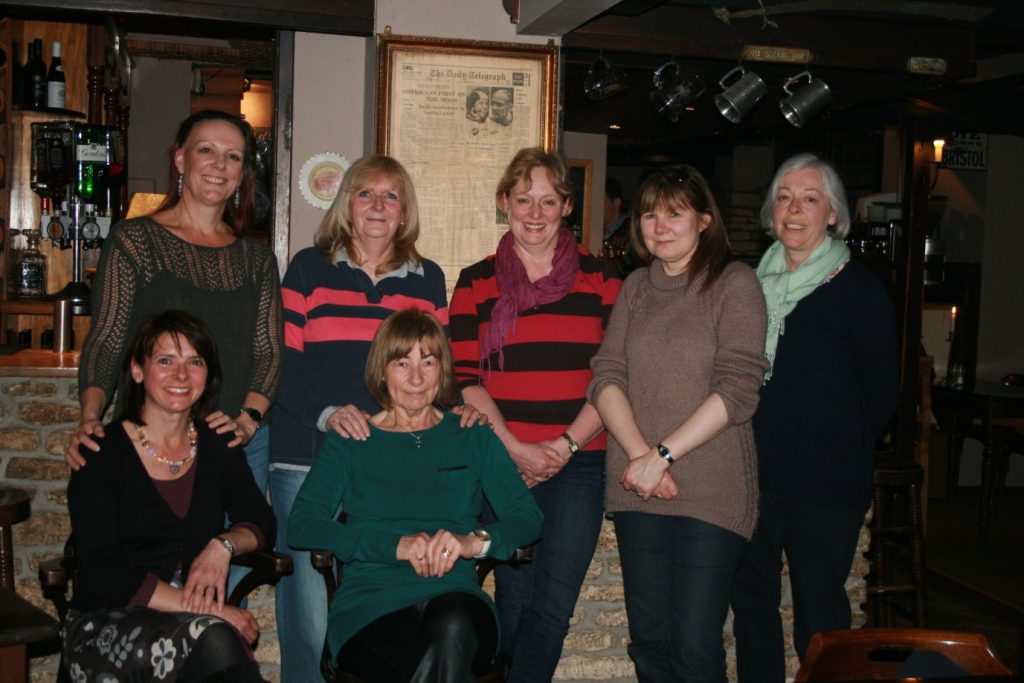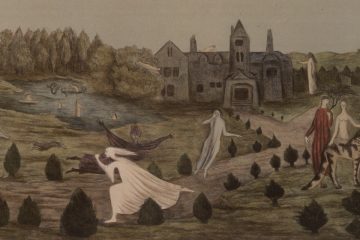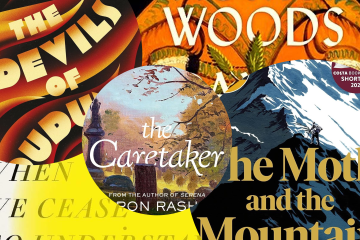
This month the Lit List has been taken over by the Burton Book Club as they celebrate their tenth anniversary.
When the Book Club first came together in March 2014, who knew that we’d still be going strong ten years later.
Over that time we have read everything from enduring to modern classics, psychological thrillers to paranormal romance, sci-fi to cli-fi, historical fiction to dystopian fiction, cosy crime to locked door mysteries, memoir to social history, book club fiction to literary fiction, and many more besides.
Here members review some of their favourites interspersed with their views on what the book club means to them.
Cahokia Jazz by Francis Spufford (alternate history pulp fiction)
Set in an alternative 1920s America this piece of pulp fiction examines the fate of a Native Amercian population had they not been decimated by white settlers. However the First Nations only cling to a vestige of power in one city (Cahokia) via a precarious political truce.
A brutal murder, with a possible ritualistic element, of a member of the Klu Klux Klan, causes suspicion to fall on the indigenous community, threatening the tenuous position of the First Nations. To avoid a bloody civil war a Native American detective must unravel the political and criminal interplay to discover the truth.
This book takes the reader on a richly written journey with plenty of twists, turns and cliff-hangers.
Highly recommended.
Reviewer: Sue Clark

My first experience with the Burton Book Club was seeing them gather at the Old House at Home. They were an interesting group of ladies known to me from varied activities around the village. I was struck by how the group giggled in the corner by the big window and clearly had more in common than a book of the month.
Cynthia Walsh
When I was asked to join, much later, I was pleased to do so, but I’m no longer good at carving out time to read. Luckily, I found Audible, and I can now keep up with the reading list. Reading books chosen by people you know is a rewarding endeavour. The books people enjoy are not always what you might suspect, so it has turned into a way of finding out more about my lovely neighbours, hearing what they like and dislike about the current read and frankly, it serves as a way of getting to know more about the fabulous women that populate our little village of Burton.
Some books are profound and confront the reader with hard issues, like self-harm and the treatment of pregnant girls in a society which simply shut them away. Some books have clever plots which force you to consider a dystopian world. The club has engaged me in reads which take me outside my long-standing bucket list and in all, it is a great hoot. Rewarding on many levels, I look forward to the books themselves, but equally, finding out what others think- and how they think. Here’s to another ten years.
The Thursday Murder Club by Richard Osman (cosy crime)
The style is easy to read yet the language is not over simplified. It is easy to empathise with the characters. The club members are all old but not in their dotage. They spark off one another which makes the different relationships interesting. The plot moves along at a good pace and gives the reader all the necessary clues to work out the solution.
Once finished it is easy to want to learn more about the Thursday Murder Club. Subsequent books are not a let down.
Reviewer: Marje Caie
There have been so many good reads over the years. For me it is the desire to learn more about the main characters that sets the best apart. There have been authors who have led me on to further books they have written. Melissa Harrison is one. I read books I have enjoyed more than once. There is one author, Amanda Read, from whom I am still waiting for her second novel.
Marje Caie
Black Diamonds by Catherine Bailey (nonfiction)
The Fitzwilliam family of Wentworth House, owners of 70 Yorkshire collieries, were Britain’s richest aristocrats.
Black Diamonds is an extraordinary tale of fabulous wealth and privilege, family feuds and forbidden love. It charts England’s social upheaval of the first half of the twentieth century, and the Fitzwilliam’s ultimate demise.
I love this book for its insights on the English upper class, in particular the ruthless protection of reputation and bloodline at all costs. Also fascinating is the close association between British and American elites, the reader gets a strong sense of a transcontinental playground out of the reach of lesser privileged mortals.
There are so many threads within this epic family saga. Wisely, the author doesn’t attempt to follow them all. Instead, she steers the narrative into a cohesive whole.
Well-researched and skilfully written.
Reviewer: Amanda Read
I like the book club’s egalitarian nature. We take it in turns to select the book of the month, which introduces me to authors and genres that might otherwise have escaped my radar. Even when I have read a group pick before, the re-read and subsequent discussion within the group illuminates different aspects of the book, challenging my perspective.
Amanda Read
While our conversation starts with the book, inevitably it sparks off every which way. In the time we’ve been together members’ families have grown up and flown the roost. We’ve had weddings, births, bereavements, new pets, new jobs, retirement, and plenty (I’m talking gallons😉) of good cheer. We’ve shared our loves and peeves and, above all, our friendship.
The Girl Behind the Gates by Brenda Davies (fiction)
As an innocent seventeen-year-old, Nora Jenning has one night of passion that shapes her future and results in her being sectioned under the ‘Mental Deficiency Act’. Thereafter, she becomes subject to most extreme cruelty by the people who should be caring for her. Then she meets a forward-thinking psychiatrist, Janet Humphreys, who helps her heal the past and live once again.
This book is an adult read, at times there are some shocking events, which nearly take Nora to the point of destruction. Although, through the passage of time and help from some very caring professionals, her life, once more, becomes her own. The tragic events that she lives through is not an easy read but a very compelling one.
A beautifully written novel, based on a true story. Heart-wrenching, sometimes shocking, all-absorbing read.
I would highly recommend this book, it’s a look into the past of how we did things so very wrong.
Reviewer: Lee Jane Hawkes
The book club is a special place for me, not only to share my book adventures with others and to hear about more. Interestingly, one person’s interpretation of a book can be very different from another’s. Also, each person gains something different from that reading experience. The world of books: your imagination knows no bounds. Adventure can be there at any turn of a page. That’s why I ❤️ to read.
Lee Jane Hawkes
A Little Life by Hanya Yanagihara (literary fiction)
An unforgettable book that left me sobbing at the end. The heartbreaking story of Jude, whose life is full of pain and misery caused by sexual abuse and self-harming that started in his childhood and continued throughout his adulthood. What struck me is the fact that our childhood shapes our adulthood and certain traumas and experiences will overshadow your adult life no matter how successful you may become
I did not hesitate to book the ticket for the stage adaptation (yes, seeing nude James Norton playing Jude has something to do with it, I’m not going to lie! 😊). I was very intrigued to see how a 700 page book filled with so much pain, blood, love, can be adapted into a play. In my opinion it was a masterpiece. I wouldn’t recommend seeing it if you can’t stand the sight of blood (a couple of people fainted!). It was cleverly adapted and although painful to watch it will stay with me for a long time.
Reviewer: Magda Reglewska
I love reading books, it is my favourite way to spend my free time. I joined the Burton book club so I can socialise with lovely people who share a common interest, but mainly to challenge myself and read books outside my comfort zone. Thanks to the book club I have enjoyed books that otherwise I would have never picked up on my own!
Magda Reglewska
A Gentleman in Moscow by Amor Towles (literary fiction)
A book about aristocracy, imprisonment and escape.
Set in post revolutionary Russia, the main protagonist is Count Alexander Rostov who is accused of writing an anti-revolutionary poem and put on trial. High ranking friends save him from the firing squad, getting his sentence reduced to life imprisonment as a ‘Former Person’ in Moscow’s Hotel Metropole. The Hotel is a luxurious Art Noveau palace, although Count Rostov is mainly confined to a small attic room. The glamorous surroundings of the hotel in juxtaposition with the Count’s quarters are as much a character as our hero.
As the years go by the novel reveals the character of the Count (and his backstory) as well as his growing friendships with a variety of hotel guests. The world outside is viewed through the prism of Rostov’s tiny principality, so there is an element of detachment which shields the Count (and the readers) from some of barbarity of those times. Written with a light touch, much wit and humour, the novel does not skirt the horrors of Stalinsim. The author manages the pathos with understatement and skill so that the reader is not allowed to wallow in either grief or superficiality.
I fell a little bit in love with Count Rostov, enjoying his always gentlemanly behaviour, his ‘bon mots’ and philosophical approach to life. It was one of those books that I didn’t want to end and as soon as I did, I sought out other titles by the author. Although on very different topics and in very different styles, I was delighted to find them as engaging and well written as this.
If you want a book that engages all of the emotions as well as keeping you entertained, this is the one that will do it.
Reviewer: Sue Clarke




0 Comments